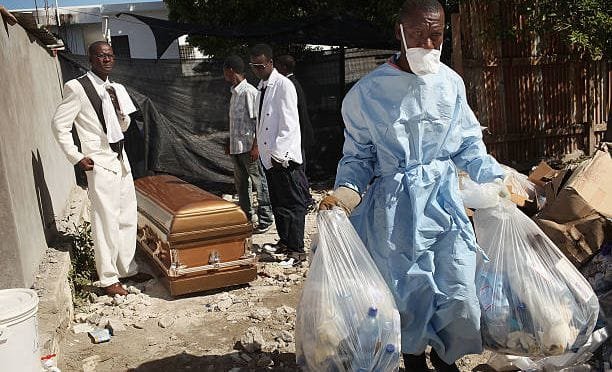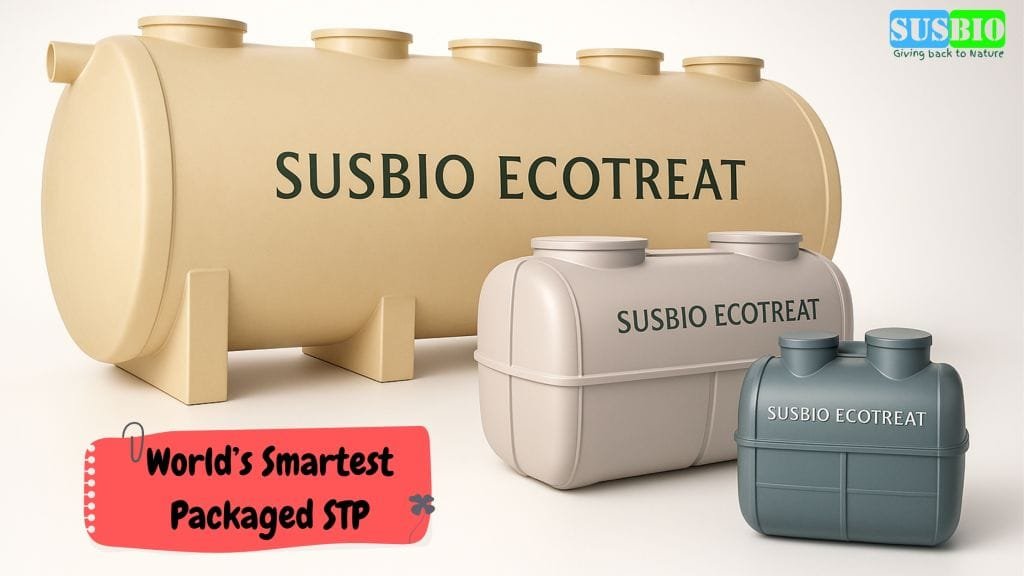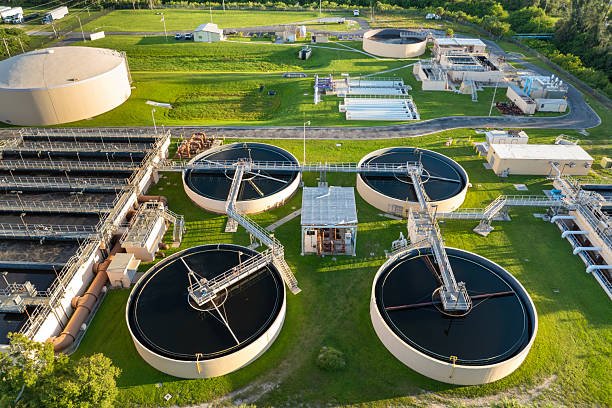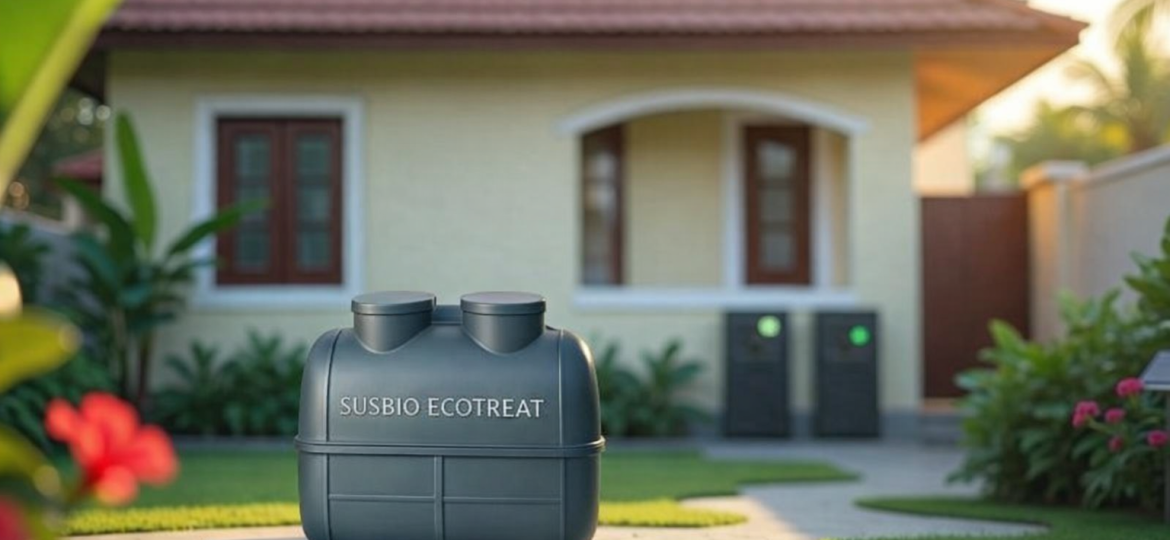In the healthcare sector, maintaining exceptional hygiene and environmental sustainability is non-negotiable. Hospitals, as major water consumers, generate complex wastewater streams laden with infectious agents, pharmaceuticals, and hazardous chemicals. Effective management of this hospital sewage is critical—not just for regulatory compliance, but for safeguarding public health and preserving our environment.
Understanding Hospital Sewage

What is Hospital Sewage and Why Does It Need Treatment?
Hospital sewage is the wastewater generated from various hospital departments, including emergency rooms, operating theaters, intensive care units (ICUs), laboratories, radiology departments, canteens, and laundry services. Unlike typical domestic wastewater, hospital sewage contains a complex mix of contaminants, such as:
Pathogens: Harmful bacteria, viruses, and other microorganisms that pose infection risks.
Pharmaceutical Residues: Unused or metabolized medicines that can harm aquatic life.
Hazardous Chemicals: Disinfectants, solvents, and heavy metals used in medical procedures.
Radioactive Isotopes: Materials from diagnostic imaging and treatments.
Organic and Inorganic Waste: Contaminants from various hospital processes.
Untreated hospital sewage can infiltrate water bodies, disrupt ecosystems, and contribute to the spread of diseases, making treatment essential for:
Protecting Public Health: Reduces infection risks by removing harmful pathogens.
Preserving the Environment: Prevents contamination of surface and groundwater sources.
Regulatory Compliance: Ensures adherence to environmental laws and avoids penalties.
The Role of Sewage Treatment Plants in Hospitals
Sewage treatment plants (STPs) for hospitals are designed to treat wastewater before its safe release into the environment or reuse within the facility. These plants employ advanced technologies to remove contaminants and disinfect the water, ensuring compliance with environmental standards and promoting sustainability.
Key Functions of Hospital STPs:
Proper Disposal of Waste: Eliminates pathogenic microorganisms, preventing the spread of infections.
Water Resource Protection: Reduces water pollution by treating wastewater effectively.
Effluent Reuse: Enables recycling of treated water for non-potable applications like irrigation or flushing.
Sustainability Promotion: Demonstrates commitment to environmentally responsible practices.
The Sewage Treatment Process for Hospitals
A hospital STP typically follows a multi-stage process to ensure thorough treatment of wastewater. Here’s a breakdown of the steps:
1. Preliminary Treatment (Pretreatment):
Objective: Removal of large debris and heavy solids.
Process: Wastewater passes through bar screens to filter out items like sticks, rags, and other substantial materials. Heavy inorganic matter (grit) is removed using a grit chamber. This step is an essential part of primary sewage treatment, as it prepares the wastewater for further treatment by removing large particles and debris that can hinder the process.
2. Primary Treatment:
Objective: Separation of solids and greases from the wastewater.
Process: Water is directed into primary clarifiers, where solids settle at the bottom (primary sludge) and lighter particles, such as oils, float to the surface to be skimmed off.
3. Secondary Treatment:
Objective: Removal of dissolved organic matter through biological processes.
Process: Wastewater flows into an aeration tank, where bacteria break down organic contaminants. Oxygen is supplied to support microbial activity. Treated water then enters secondary clarifiers, where solids settle as secondary sludge. Part of this sludge is recycled for the activated sludge process, while the rest is sent for digestion.
4. Tertiary Treatment:
Objective: Advanced purification and disinfection.
Process: This stage removes remaining suspended solids, organic matter, and pathogenic microorganisms through methods like filtration, UV disinfection, or chlorination. The treated water is now safe for reuse or disposal.
Benefits of Sewage Treatment Plants in Hospitals

Implementing an effective sewage treatment plant offers numerous advantages:
- Proper Waste Disposal: Ensures that harmful pathogens and contaminants are neutralized, preventing the spread of diseases and protecting public health.
- Environmental Protection: Reduces pollution in water bodies, preserving aquatic life and maintaining ecosystem balance.
- Resource Conservation: Treated water can be reused for non-potable purposes such as flushing toilets, irrigation, or cooling systems, promoting sustainability and reducing freshwater consumption.
- Regulatory Compliance: Helps hospitals meet environmental regulations and avoid fines, fostering a culture of accountability and responsibility.
- Enhanced Reputation: Demonstrates a commitment to environmental stewardship and public health, strengthening the institution’s reputation within the community.
Advanced Technologies in Hospital Sewage Treatment
Modern sewage treatment plants for hospitals incorporate cutting-edge technologies to enhance efficiency and effectiveness:
- Moving Bed Biofilm Reactor (MBBR): Utilizes biofilm carriers to provide a large surface area for microbial growth, enhancing the breakdown of organic matter.
- Membrane Bioreactors (MBR): Combines biological treatment with membrane filtration, offering superior separation of solids and pathogens.
- Sequencing Batch Reactors (SBR): Operates in batches, allowing for precise control over the treatment process and adaptability to varying wastewater loads.
These technologies ensure that hospital sewage is treated to the highest standards, making reclaimed water safe for reuse and discharge.
Case Study:
Kozhikode Medical College Hospital operates a 5 MLD plant using electrolytic technology and advanced reactors, optimizing efficiency and supporting future water reuse.
Kamakshi Hospital in Visakhapatnam uses an MBR-based system to supply high-quality water for critical uses, integrating energy-efficient heat pumps for sustainability.
Choosing the Right Sewage Treatment Solution
When selecting a sewage treatment plant for a hospital, consider:
Wastewater Volume and Load: Ensure the system matches your facility’s output and contaminant profile.
Space and Installation Constraints: Opt for modular, prefabricated units for quick and easy deployment.
Compliance and Certification: Choose systems that meet local and national standards.
Maintenance and Support: Reliable after-sales service is essential for uninterrupted operation.
SUSBIO ECOTREAT: The Best Sewage Treatment Plant for Hospitals
SUSBIO ECOTREAT stands out as a top choice for hospital wastewater management:
Dual Treatment Process: Integrates anaerobic and aerobic methods for maximum contaminant removal.
Prefabricated, Modular Design: Quick installation, easy scalability, and minimal footprint.
Energy-Efficient & Low Maintenance: Up to 90% less energy usage, with robust FRP construction for durability.
Odor-Free, Silent Operation: Ideal for sensitive hospital environments.
Customizable Solutions: Tailored to the specific needs of each healthcare facility.
Regulatory Compliance: Consistently meets or exceeds discharge standards, supporting sustainability goals.
Benefits of Hospital STPs
Protects patient and community health
Reduces environmental impact and supports water conservation
Ensures regulatory compliance and avoids penalties
Enhances hospital reputation for sustainability and responsibility
Enables cost savings through water reuse and energy efficiency
Conclusion
Sewage treatment plants are indispensable for hospitals striving to maintain high standards of hygiene while minimizing their environmental impact. By investing in a well-designed STP, healthcare facilities not only comply with regulations but also contribute to a sustainable future. Proper wastewater management is a testament to a hospital’s dedication to public health and environmental conservation. Advanced solutions like SUSBIO ECOTREAT empower healthcare facilities to manage wastewater safely, efficiently, and sustainably demonstrating a true commitment to public health and environmental stewardship.







2 Comments
[…] compliance with environmental regulations, maintain public health, and protect natural resources. Hospital sewage treatment plants are specially designed to tackle these unique pollutants, making them indispensable for any […]
[…] In this blog, we will explore why hospitals need sewage treatment plants, the ideal features of an STP for hospitals, and why SUSBIO ECOTREAT stands out as the best […]